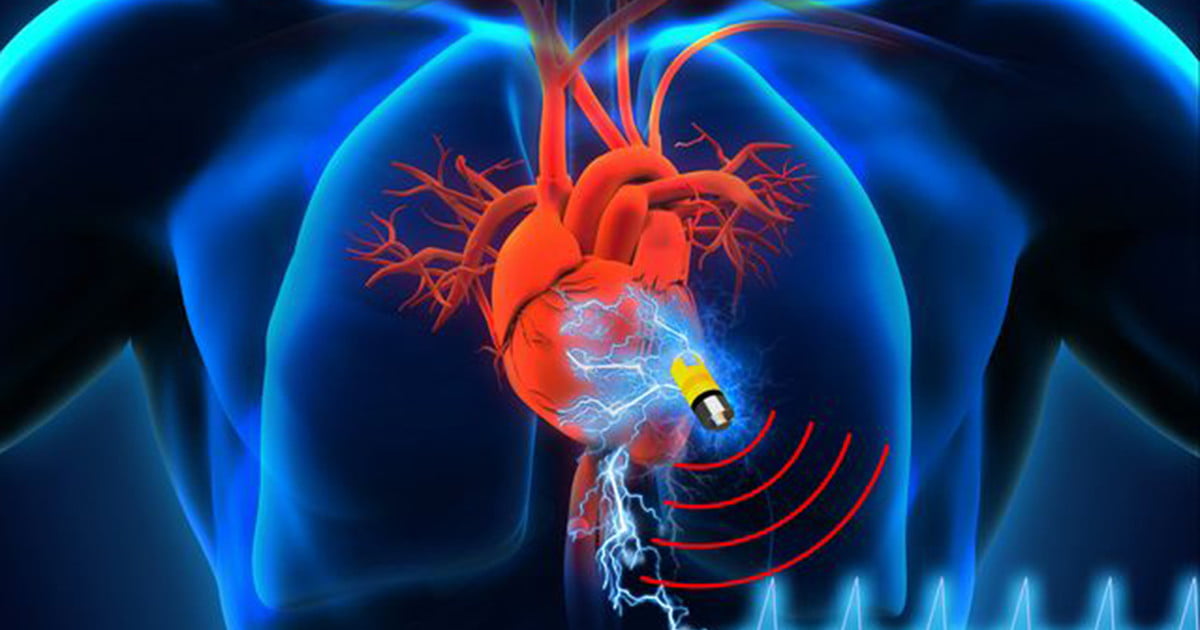Treatments For Sinus Tachycardia
Sinus tachycardia is a heart condition characterized by the sinus node relaying electrical impulses at an abnormally fast rate. This results in a chronic or consistent heart rate of over one hundred beats per minute. This typically happens when additional stressors are affecting the body such as illness, fever, exercise, dehydration, strong emotions, as well as mental and emotional stress. For some individuals, the symptoms experienced when the heart rate rises up to this high level can cause sinus tachycardia to be more problematic then it is for others. Heart palpitations, fatigue, weakness, and dizziness can make it difficult to accomplish everyday tasks that would only cause a normal increase in heart rate for other individuals. While sinus tachycardia can become dangerous and complex to work with, there are several methods used to treat the condition. Learn about them now.
Consuming A Heart-Healthy Diet

Maintaining a low-fat diet can ensure the body's cholesterol stays at an acceptable level. Opting for fat-free or skim milk over whole milk as well as using part-skim cheeses can help avoid cholesterol putting the heart under additional stress. A diet specifically developed for individuals who have difficulty with hypertension called the Dietary Approaches To Stop Hypertension (DASH) diet can be ideal for sinus tachycardia patients. The DASH diet is characterized by low sodium intake in addition to numerous vegetables, proteins, fruits, fat dairy, and whole grains. Consuming a well-balanced, heart-healthy diet can ensure blood pressure is not elevated while reducing the risk of having a stroke or developing heart disease. The heart can gain strength and not have to work as quickly under stress to perform its function of pumping blood.
Read more about treating sinus tachycardia now.
Maintaining A Healthy Weight

Being overweight or obese puts an individual at a significantly increased risk of developing deadly heart disease or experiencing sudden cardiac death. Losing weight and maintaining a healthy body mass index are effective ways to help treat sinus tachycardia when they are also effective at improving the heart's overall health. Body weight is closely correlated with blood volume, and a significantly increased blood volume will make the heart pump faster and harder to do its job correctly. This often results in chronic sinus tachycardia in overweight individuals. Being at a healthy weight and body mass index will mean there is not an increased quantity of blood volume the heart has to work overtime to pump around the entire body. A healthy body mass index would allow the heart to beat at a normal non-stressed rate and still be fully effective at doing its job.
Continue reading to reveal more treatments for sinus tachycardia now.
Exercising Regularly

While we know exercising regularly tends to go hand in hand with maintaining a healthy weight and body mass index, and it reduces the risk of sudden cardiac death or heart failure, it has yet another way of treating chronic sinus tachycardia. At first it may almost sound counter-intuitive because exercise can actually cause sinus tachycardia, however, regular exercise builds up the body and heart's strength over time, leading to better cardiac output and higher cardiac efficiency. The term for this is called conditioning of the body and the heart so they both become strong enough to not have to pump so quickly to get oxygen to all parts of the body. When using exercise therapy or regular exercise routines to treat sinus tachycardia, it is important it is done by making a slow increase in activity levels for the first several weeks to reduce the risk of a sudden cardiac event, which can be very dangerous or even deadly.
Get the details on more ways of treating sinus tachycardia now.
Avoid Stimulants And Stress

When an individual is under extreme mental or emotional stress, it can adversely affect their body by causing physical stress. When a person starts to feel stressed, specific stress hormones, such as epinephrine, are released into the bloodstream, which causes an increased heart rate and an increase in blood pressure almost instantly. Stress hormones also increase the metabolic rate, which puts a higher than normal oxygen demand on the cardiac and pulmonary systems. Stimulants such as caffeine, nicotine, herbal supplements, and alcohol can cause chronic sinus tachycardia by stimulating the part of the brain responsible for the regulation of several vital functions, including rhythm of the heart. Finding healthy ways to cope with and avoid stimulants and stress can go a long way in treating sinus tachycardia. In addition, cutting down or cutting out smoking, regular caffeine intake, and consumption of alcohol can also make great strides in the treatment of sinus tachycardia.
Get to know another way to treat sinus tachycardia now.
Cardiac Ablation Procedure

A cardiac ablation procedure is typically the treatment utilized once all of the other treatment options for chronic sinus tachycardia have been exhausted to ill effect. Catheter ablation is when a catheter is fed into a main artery in the body with a direct path to the heart, and then strong electrical impulses are used to dismantle a small section of the electrical path or electrical paths in the heart that are triggering sinus tachycardia. Cardiac ablation is one of the last treatment resorts due to some risks that come along with it. If the electrical signal paths throughout the entire heart are not normal and causing sinus tachycardia, the cardiac ablation may not be effective because doctors cannot dismantle sections of all the heart's electrical pathways. In addition, there is always a possibility too much of the heart tissue may be dismantled in the ablation process, which can cause the patient to need a permanent pacemaker for the rest of their life. While these complications are fairly rare, it is important to take them into consideration when making the decision to undergo a cardiac ablation.
